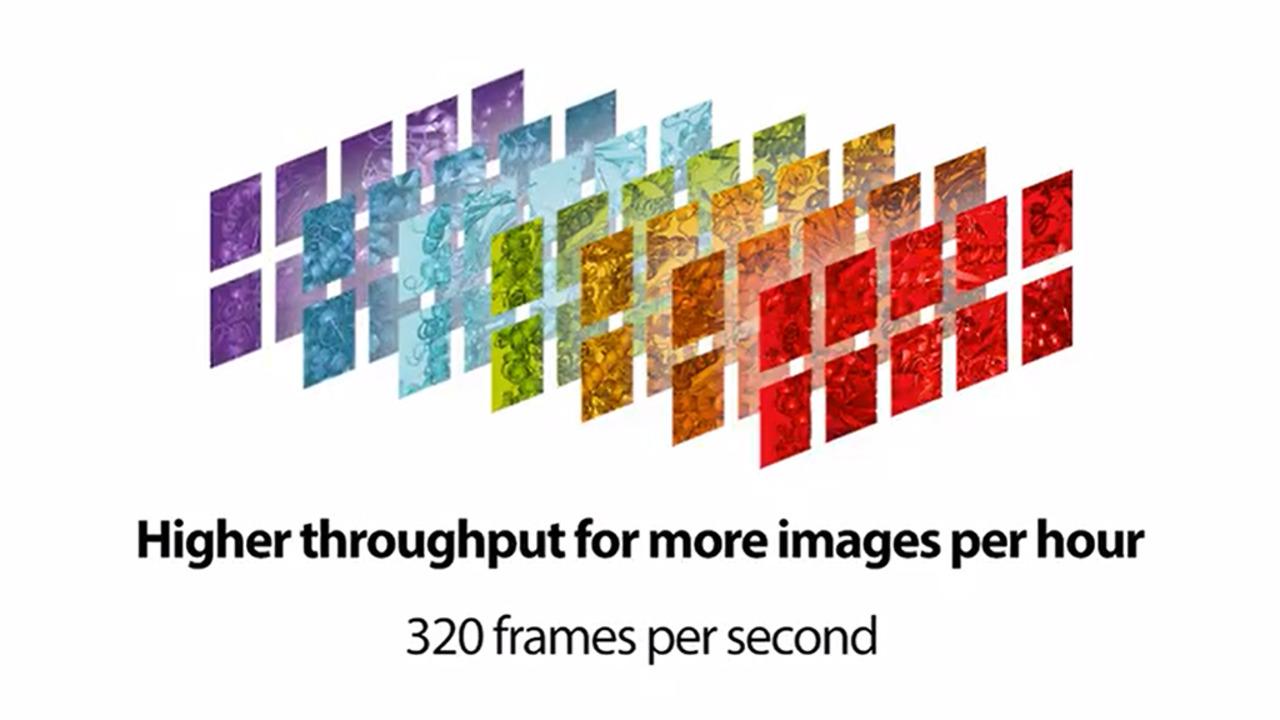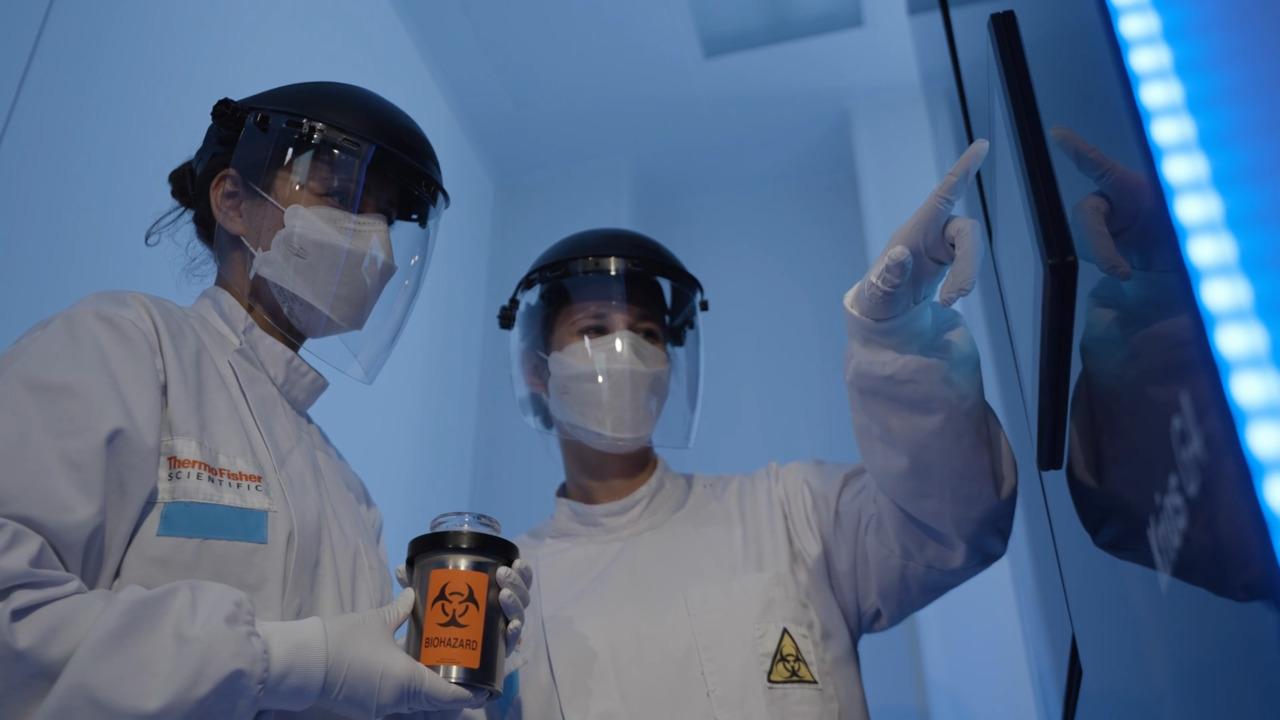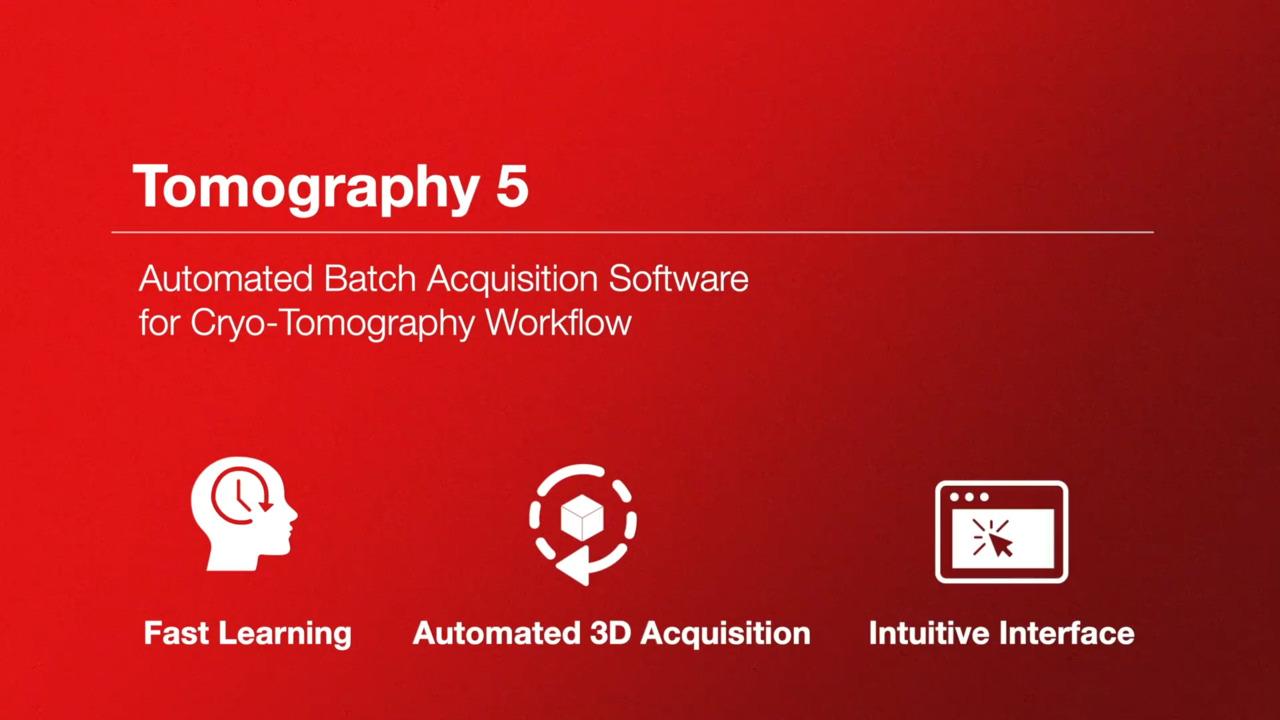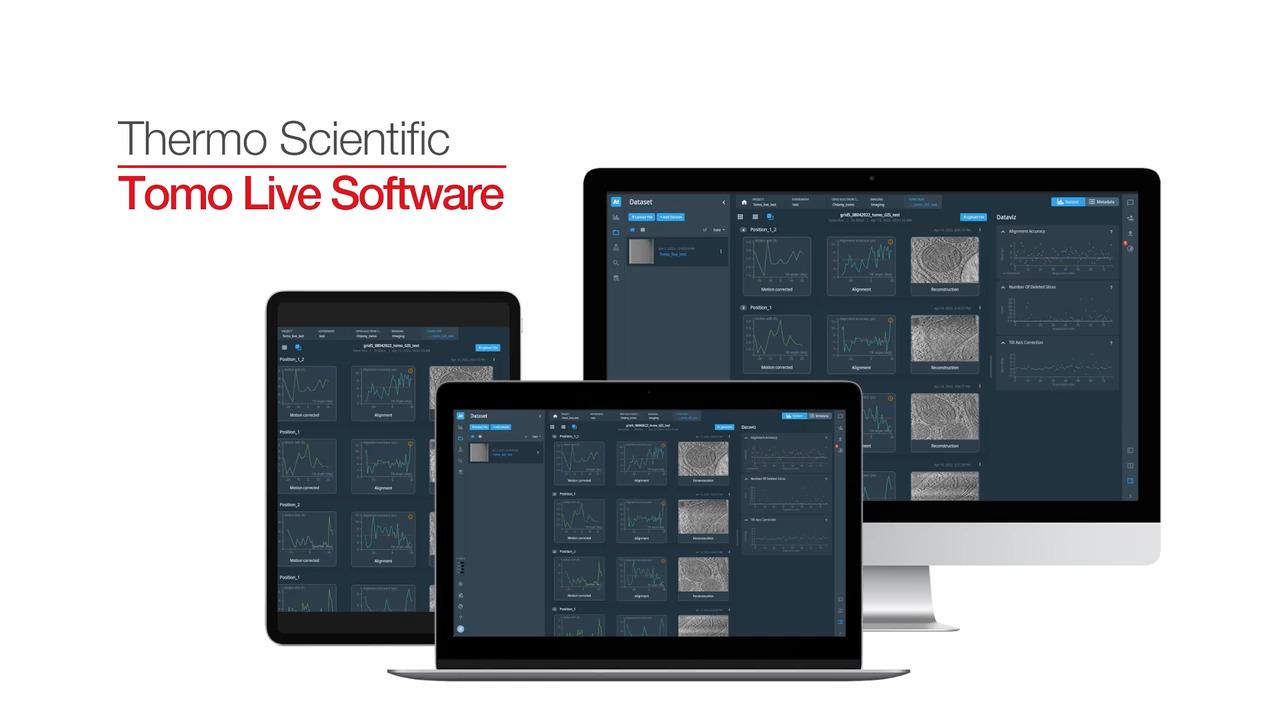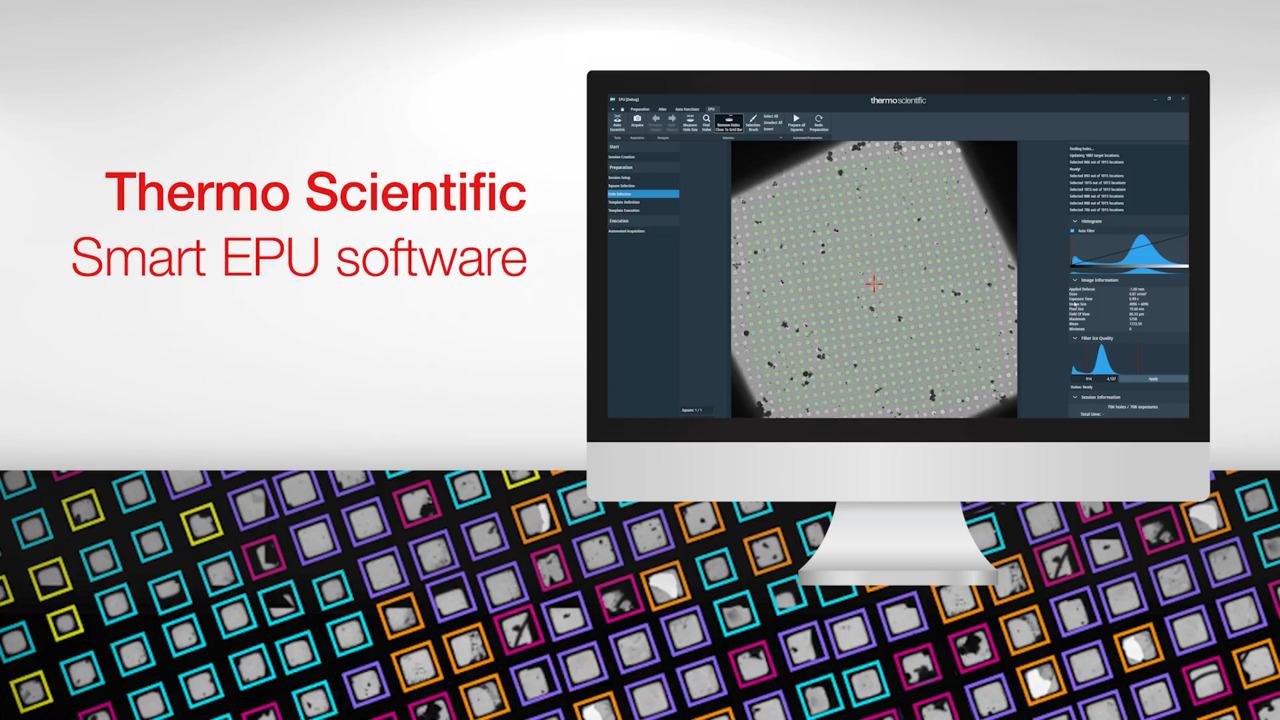Search Thermo Fisher Scientific

Increase your lab’s productivity and performance with innovative upgrades
The Thermo Scientific Krios G4 Cryo-TEM is equipped with Thermo Scientific Falcon 4i Direct Electron Detector, which is also available in combination with the innovative Thermo Scientific Selectris Imaging Filter, further increasing productivity and performance. Adding the cold field emission gun (Thermo Scientific E-CFEG) further pushes performance to enable atomic-resolution imaging. Thermo Scientific Smart EPU Software enables automated grid screening, quality monitoring, and data management. The E-CFEG, Selectris X Imaging Filters and Falcon 4i Direct Electron Detector are available upgrade options for previous Krios Cryo-TEM generations.
Cold field emission source for enhanced image quality
To meet the growing need for high-resolution, high-quality imaging, the Krios G4 Cryo-TEM can come equipped with a cold field emission gun optimized for low energy spread (E-CFEG, ≤0.3 eV). This low energy spread maximizes the contrast at high spatial frequency domain, making it possible to efficiently solve structures at resolutions of 2.0 Å or less. For example, at a target resolution of 1.5 Å, the contrast is enhanced 2x compared to the high-brightness X-FEG. Additionally, the E-CFEG enhances data throughput, and thus, productivity.
Selectris Energy Filters, zero-loss energy filtering for atomic resolution cryo-EM
The Selectris and Selectris X Imaging Filters are post-column imaging filters that improve the contrast of TEM images, resulting in high-resolution structures up to atomic resolution. The zero-loss filtering of the Selectris Filters removes noise caused by inelastically scattered electrons, producing an increased signal-to-noise ratio (SNR) and better contrast. Designed for high stability, the zero-loss peak position of the Selectris Filters has minimized sensitivity to temperature variations in the environment, eliminating the need for frequent tuning.
With the Selectris Filters, zero-loss energy filtering is straightforward due to the thorough integration of software and hardware along with extensive automation and exceptional stability. Every mechanical and electron-optical element has been designed for stability and data reproducibility, enabling the unattended and reliable acquisition of large datasets with narrow energy slit widths (<10 eV). The capability to use these narrow-slit widths provides an additional boost in contrast for single particle cryo-EM, enhancing signal strength, resolution, and throughput. To further increase the productivity and ease-of-use of your cryo-EM workflows for single particle analysis and cryo-electron tomography, these filters are fully integrated into Thermo Scientific EPU Software, Thermo Scientific Tomography Software, and the instrument operation software.
A narrower energy slit width (10 eV) translates into a lesser number of particles needed to obtain equivalent resolution (370k) compared to using a wider energy slit. As a result, with the Selectris X Imaging Filter, you can obtain results faster with less data or maximize your resolution efforts.
Falcon 4i Direct Electron Detector for enhanced image quality
The Falcon 4i Direct Electron Detector is the ideal solution for both single particle and cryo-tomography applications. With its unique combination of high image quality, high throughput, efficient lossless data compression enabled via electron-event representation (EER), and a streamlined solution for data management and quality monitoring, the Falcon 4i Detector offers productivity and a performance boost over other detectors.
Heat decontamination for biosafety labs
The Krios G4 Cryo-TEM can be equipped with a 60°C heat decontamination solution for installation in higher biosafety-level containment facilities (e.g. BSL-3). This accessory enables pathogen research and comprehensive instrument service in higher biosafety-level containment facilities, so you can help make the world cleaner, safer, and healthier. Our remote diagnostics and repair capabilities accelerate support for these installations and reduce the need for physical access.
For these installations, the 60°C heat decontamination solution consisting of both hardware and software to heat the interior of the microscope enclosure. The hardware consists of heaters and temperature sensors. The software provides controls for initiating the heating cycle, defines the duration of the process, and tracks the temperature of multiple sensors placed inside the enclosure. Additional components to prevent aerosol release and a secondary workstation, providing microscope control from outside the containment area, complete this solution.
Cryo-EM acquisition software
The Krios G4 Cryo-TEM comes with a complete suite of automation software. This includes user-friendly single particle data acquisition software, Smart EPU Software, which offers guided day-to-day operation, a traffic light UI element that indicates the microscope’s status, and predefined templates for typical use cases that allow you to begin collecting high-resolution data with only a few clicks.
Thermo Scientific Tomography 5 Software brings you the latest advances in cryo-tomography, allowing you to acquire valuable 3D data, even on your most challenging vitrified samples. Its new user-friendly interface enables both experienced and new users to jumpstart their tomography data acquisition.
Tomography 5 Software also connects with Thermo Scientific Tomo Live Software for automatic on-the-fly data reconstruction and review in any browser.
Tomo Live Software is an optional add-on for Tomography 5 Software that offers on-the-fly data monitoring through real-time reconstruction of tilt series into 3D volumes. It can automatically perform motion correction of fraction movies, fiducial-free tilt series alignment, and 3D reconstruction during tilt series recording. These reconstructed tomograms allow for impromptu data quality evaluation, identification of high- and low-quality tilt series, and exporting of selected tilt series and reconstructed tomograms for further processing, archiving, and sharing.
Smart EPU Software, an AI-enabled software solution, can analyze intermediate results, providing instant feedback, and steering data collection on the fly. The AI algorithms are based on years of cryo-EM knowledge, designed to replace decisions that experts need to make upfront and ensure that your instrument is working at optimal conditions, allowing you to focus on the science rather than on fine-tuning the microscope.
For Research Use Only. Not for use in diagnostic procedures.

